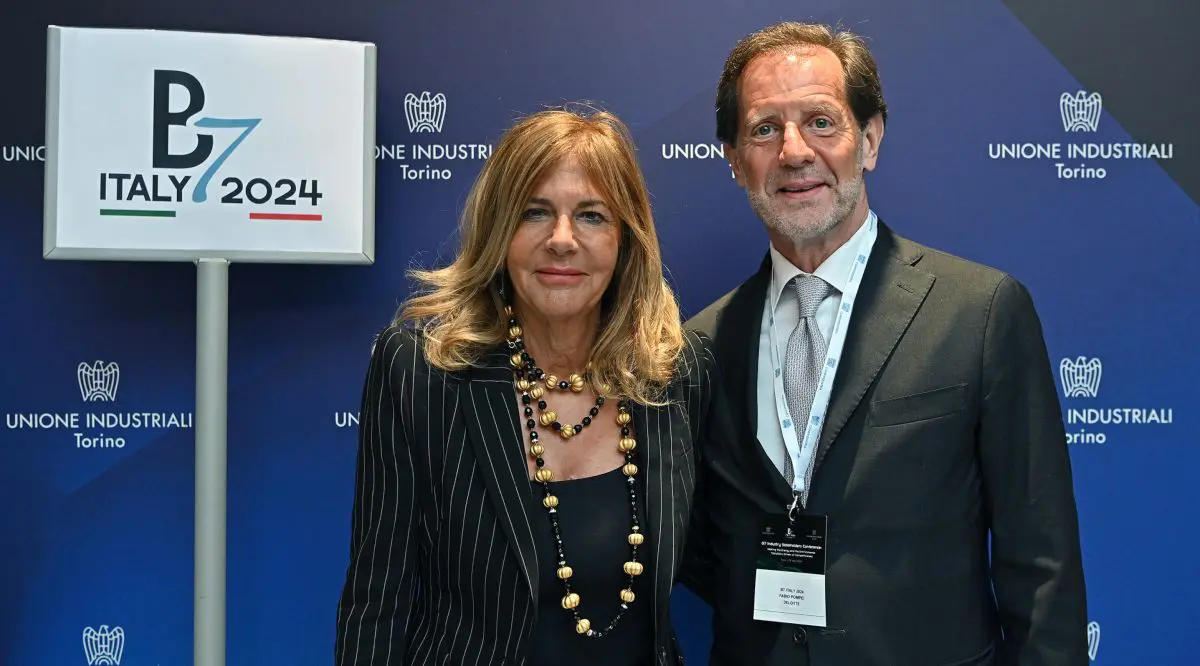ROME (ITALPRESS) – Maximizing the benefits of artificial intelligence, managing global uncertainties to promote business competitiveness and economic growth, and supporting Africa’s sustainable development. These are some of the main recommendations of the B7 – led by Confindustria and Chair Emma Marcegaglia and of which Deloitte Italy is the exclusive Knowledge Partner – taken up by the G7 Italy. The percentage of acceptance of the Business proposals of the world’s seven most advanced democratic economies is over 90 percent, as indicated in the “B7 Responsiveness Report,” prepared by Confindustria with the support of Deloitte, the B7’s exclusive Knowledge Partner. The report was produced at the conclusion of B7 Italy 2024, ahead of the handover to Canada, which will assume the presidency of the G7 and B7 in 2025. Thanks to unprecedented innovations, such as the establishment of Advisory Boards – advisory bodies composed of CEOs from leading national and international business groups – and G7 Industry Stakeholders Conferences – organized on the sidelines of major G7 Ministerials to facilitate meetings between industry and government representatives – B7 Italy has played a key role in facilitating dialogue between business and institutions to identify and target priorities for the global economic agenda.”The common commitment in the face of the complexity and uncertainty of the global scenario,” explains B7 Chair Emma Marcegaglia, “has seen our B7 work in close coordination with the Italian G7 Presidency to address the challenges of the ongoing transformations through an approach strongly oriented to boosting the industrial competitiveness of the G7 countries, which has been the beacon guiding our action and the common thread linking our recommendations. While in continuity with previous cycles, the Italian edition of B7 has broadened and deepened the comparison between industrial federations by involving authoritative national and international CEOs, and this innovation has meant that almost all of our priorities and recommendations have found a clear and sharp correspondence with the conclusions of the Italian G7 Presidency, testifying to the attention of governments to the instances of industry and to public-private collaboration.””The significant convergence,” says Deloitte Central Mediterranean Ceo Fabio Pompei, “between the priorities of the B7 and the Italian G7 presidency on the most relevant issues on the global economic agenda-from the multiple transitions taking place to the promotion of social inclusion and the resilience of global value chains-underscores the importance of an inclusive and shared approach between public and private sectors. This requires a structured model of collaboration that can integrate the strategic vision and innovative capacity of the private sector with the regulatory and normative leadership of public institutions. The G7 are therefore called upon to lead an ongoing, informed and action-oriented dialogue, which is essential to translate these shared priorities into transformative policies and strategic interventions capable not only of addressing immediate challenges, but also of positioning global economies on a path of sustainable, equitable and resilient growth that can generate lasting and positive international impact. “Maximizing the benefits of ethical and inclusive use of artificial intelligence finds total alignment between B7 and G7 on the role AI can play in supporting productivity and industrial competitiveness. This is a central aspect precisely because artificial intelligence was identified by the Italian G7 presidency as one of the most relevant topics of last June’s Summit, which also saw the historic participation of the Pontiff in dedicated working tables.Converging on the recommendations of the B7 and the leaders of the G7 countries on strategic initiatives to ensure competitiveness and growth in developing countries, starting with those in Africa, with a focus on collaboration in areas such as sustainable development, reducing dependence on commodity exports, combating food insecurity, digitization, improving healthcare, and investing in greater inclusion of youth and women in educational processes and youth and women entrepreneurship.B7 and G7 efforts are aimed at supporting the ongoing climate, energy and environmental transitions with public and private investments in order to achieve globally shared outcomes, such as carbon neutrality by 2050. In this regard, the G7 reaffirmed its commitment to the Paris Agreement to limit global warming to 1.5 degrees, emphasizing the need to close the emissions gap as highlighted at COP28. Collaboration with international financial institutions aims to catalyze investment in sustainable industrial technologies by exploring innovative financing mechanisms for climate adaptation and clean energy.Other priorities shared between B7 and G7 see the need to strengthen free markets to support international trade, preserve the resilience of global value chains, and to achieve the goal of balancing economic security and open markets by countering unfair and free-market distorting trade practices. Also reaffirmed support for the WTO and multilateral collaboration, promoting foreign direct investment in innovative and sustainable infrastructure, which is essential for the global economic inclusion of developing countries and Africa in particular.For sustained and inclusive growth, it is essential to strengthen digitization processes through the diffusion of digital skills in business, government and society. It is also critical to capitalize on the ongoing digital transformation and the benefits of the Data Economy, with the G7 pledging to reduce regulatory fragmentation and promote “Data Free Flow with Trust,” ensuring fundamental rights such as privacy, data protection and security, and intellectual property.Reiterating the strong alignment with the recommendations made by the B7, the G7 highlighted the importance of promoting equitable working conditions by ensuring quality of work, fundamental rights, and safe environments. It is critical for G7 countries to take steps toward inclusion by improving current welfare systems, supporting people with disabilities, and accelerating gender equality. Finally, investing in lifelong learning systems is key to adapting to changing labor market needs, especially in the green and digital spheres.
– Press office photo B7 –
(ITALPRESS).

